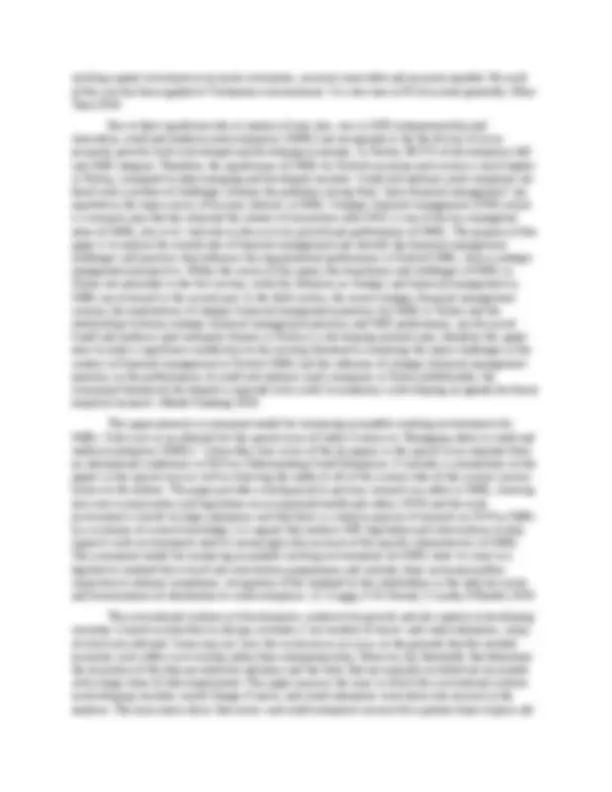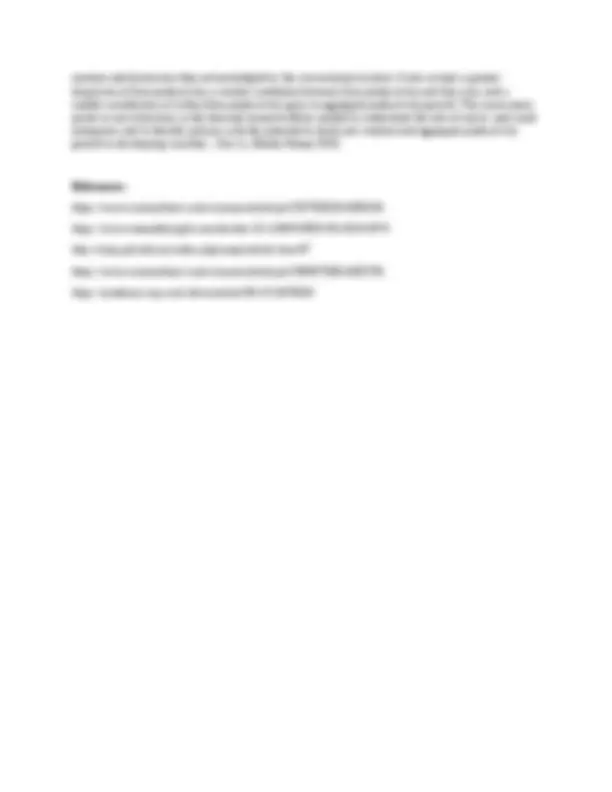




Study with the several resources on Docsity

Earn points by helping other students or get them with a premium plan


Prepare for your exams
Study with the several resources on Docsity

Earn points to download
Earn points by helping other students or get them with a premium plan
Community
Ask the community for help and clear up your study doubts
Discover the best universities in your country according to Docsity users
Free resources
Download our free guides on studying techniques, anxiety management strategies, and thesis advice from Docsity tutors
Descriptive title proposal for thesis research
Typology: Study Guides, Projects, Research
1 / 4

This page cannot be seen from the preview
Don't miss anything!



Courtship: Impact of intimate relationship among young accountancy students of UM in their academic performances
Sexual health is a continuous concern of college and university administrators across the country. The purpose of this study was to explore the linear and circular relationship between academic performance, risky sexual behaviors and sexually transmitted diseases. While these relationships have been vastly studied in high school students, there is limited information on how these relationships play out in college students. The National College Health Assessment-II was analyzed to identify the correlations between academic performance, risky sexual behaviors and sexually transmitted diseases. I analyzed the relationship between approximate grade point average and number of sexual partners, approximate grade point average and condom use and approximate grade point average and anal intercourse. I also examined the relationships between sexually transmitted disease status and approximate grade point average. Lastly I looked at how all three (academic performance, risky sexual behaviors, and sexually transmitted disease status) relate to each other. The results showed that generally, students with higher grade point averages engaged in risky sexual behaviors less frequently than those with lower grade point averages. Students with higher grade point averages reported fewer sexual partners, engaged in anal intercourse less frequently and reported higher rates of condom use during vaginal intercourse. Sexually transmitted disease diagnosis/treatment was also correlated with approximate grade point average in relation to gonorrhea, chlamydia and HIV. Students with lower grade point averages reported higher frequency of STD diagnosis/treatment within the last 12 months. Finally our results showed that students with higher grade point averages were less likely to be diagnosed/treated for a sexually transmitted diseases. The odds of students engaging in anal intercourse were increased as grade point averages decrease; however, the odds of students using condoms during vaginal intercourse decreased as grade point averages increase. (M. Foshter) 2014
The authors propose a theoretical model linking emotions, self-regulated learning, and motivation to academic achievement. This model was tested with 5,805 undergraduate students. They completed the Self-Regulated Learning, Emotions, and Motivation Computerized Battery (LEM–B) composed of 3 self-report questionnaires: the Self-Regulated Learning Questionnaire (LQ), the Emotions Questionnaire (EQ), and the Motivation Questionnaire (MQ). The findings were consistent with the authors’ hypotheses and appeared to support all aspects of the proposed model. The structural equation model showed that students’ emotions influence their self-regulated learning and their motivation, and these, in turn, affect academic achievement. Thus, self-regulated learning and motivation mediate the effects of emotions on academic achievement. Moreover, positive emotions foster academic achievement only when they are mediated by self-regulated learning and motivation. The results are discussed with regard to the key role of emotions in academic settings and in terms of theoretical implications for researchers. (Mega, Carolina, Ronconi, Lucia, De Beni, Rossana) 2014
This study investigated factors predicting the courtship stalking behavior of male college students. Data were collected from 164 male college students who were described as men who wanted to date women who did not want to date them. Participants were from either a four-year university or a two- year college located in A-city, Korea. Courtship stalking behaviors were measured using Sinclair and Frieze's Courtship Stalking Behaviors Scale. The collected data were analyzed using a χ 2 -test, a Mann- Whitney U-test, and a binomial logistic regression. As male students’ dating frequency decreased, so did courtship stalking behaviors (Exp (B) = .093, p = .001). As male students’ attachment anxiety increased, so did courtship stalking behaviors (Exp (B) = 1.065, p = .046). Moreover, as male students’ experience with physical violence increased, so did courtship stalking behaviors (Exp (B) = 1.339, p = .019). Finally, if male college students have had childhood experience with physical violence and have high attachment anxiety, there is a need for the early detection and management of their relationship with the opposite sex. (Eun Young Yoo , Seung A Lee, Sung Hee Lee) 2016
References:
https://www.ideals.illinois.edu/handle/2142/
https://journals.sagepub.com/doi/pdf/10.1177/
https://pdfs.semanticscholar.org/8b7c/fa477926490e729cf170a59417bea37d7a03.pdf
https://www.docsity.com/en/effects-of-having-a-romantic-relationship-while-studying/2438363/
Capital Management: A Study of the different management strategies of Sari-sari Store owners in Davao City
The recent economic downturn of 2007–2008 has brought renewed focus on working capital policies. In this paper we examine the role of business cycles on the working capital–profitability relationship using a sample of Finnish listed companies over an 18-year period. We find the impact of business cycle on the working capital–profitability relationship is more pronounced in economic downturns relative to economic booms. We further show that the significance of efficient inventory management and accounts receivables conversion periods increase during periods of economic downturns. Our results demonstrate that active working capital management matters and, thus, should be included in firms’ financial planning. (Julius Enqvist, Michael Grahamb, JussiNikkinenc) 2014
Well-designed and implemented working capital management (WCM) will encourage positive returns for a business and establish the firm’s value, while ineffective management will undoubtedly lead to failure of the enterprise. The paper aims to discuss these issues. In business, fixed capital and working capital are the two main forms of capital used. The current assets used in the business as working capital for day-to-day operations include raw materials, work in progress, finished goods, bills receivable, cash and bank balance. This paper analyses the relationship between WCM and profitability in Vietnamese small- and medium-sized enterprises (SMEs) after integration into the global economy. The results suggest that SME owner-managers can increase their firm’s profitability by reducing the number of days of accounts receivable, accounts inventories and accounts payable to an optimal minimum. In addition, a robustness check of this study indicates that high profitability will be achieved, with an optimal level of
creation and destruction than acknowledged by the conventional wisdom. It also reveals a greater dispersion of firm productivity, a weaker correlation between firm productivity and firm size, and a smaller contribution of within-firm productivity gains to aggregate productivity growth. This assessment points to new directions in the data and research efforts needed to understand the role of micro- and small enterprises and to identify policies with the potential to foster job creation and aggregate productivity growth in developing countries. (Yue Li, Martín Rama) 2015
References:
https://www.sciencedirect.com/science/article/pii/S
https://www.emeraldinsight.com/doi/abs/10.1108/JSBED-05-2016-
http://emaj.pitt.edu/ojs/index.php/emaj/article/view/
https://www.sciencedirect.com/science/article/pii/S
https://academic.oup.com/wbro/article/30/1/3/